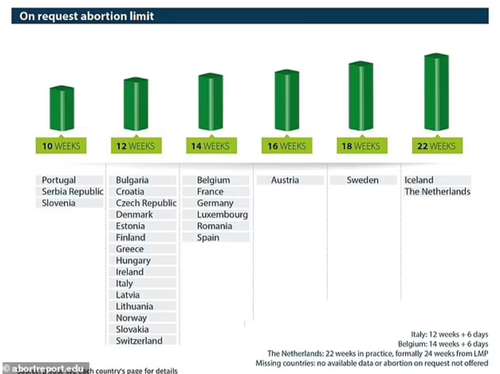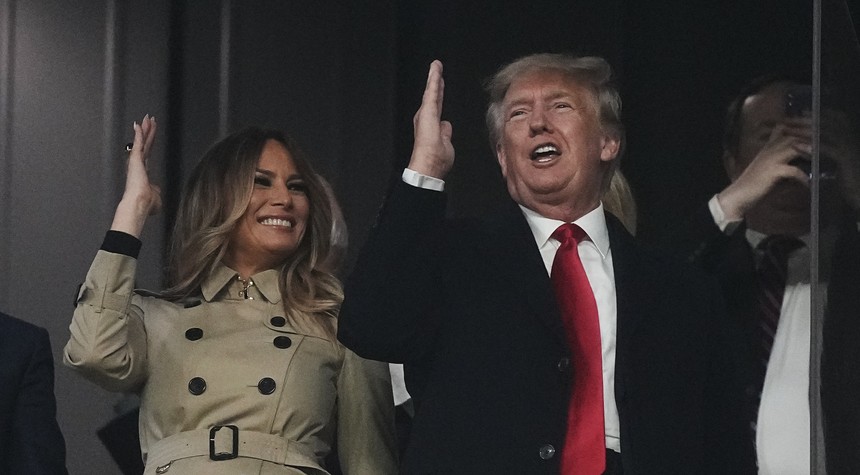When the French people voted for a new president in April, they did so on a single day using paper ballots filled out in the privacy of official polling stations. France, being a normal First World democracy, takes election security seriously. Electronic voting machines are virtually never used. Mail-in voting has been banned nationwide since 1975 out of security fears. Voter rolls are regularly purged of the dead and those who have moved. It is a given that every French voter must show identification before being allowed to fill out a ballot.
The United States, by contrast, is an oligarchy (a regime where the elite rules) that is only pretending to be a democracy. This is why we use a Third World banana republic election system.
No reasonable observer of the 2020 election in this country could draw any other conclusion. The week-long vote count, the midnight vote total changes, the months of early voting, and the unilateral changes to election law in multiple states without legislative approval prior to the election are all signs of the profound brokenness of the American election system. Were these behaviors to appear elsewhere, our foreign policy class would have already denounced that nation as undemocratic.
The BBC, in a 2016 article on the tell-tale signs of election fraud, argued that a “delay in announcing results” is but one example of election misbehavior.
In America, however, pointing out that such irregularities happened in 2020 is grounds for censorship by “private” tech companies and politicized prosecution from the federal government. This is the lesson from the January 6 protest.
In his most recent film, “2000 Mules,” Dinesh D’Souza revisits the claims of election fraud in 2020. He is right to do so. Contra Senate Minority Leader Mitch McConnell(R-Ky.), Republicans should not “move on” from the election. Without free and fair elections, we do not have a republic. Without the possibility of taking power, conservatives have no reason to talk about policy.
D’Souza’s film has its silly moments, but the meat of the film—an interview with Catherine Engelbert and Gregg Philips of True the Vote—is worth the price of admission. Put simply, True the Vote bought and analyzed cell phone tracking data from swing states collected by advertisers in the month leading up to Election Day. That data shows a suspiciously high number of “devices” (individuals) who made repeat trips to and from leftist NGOs and state-run ballot boxes in places like Atlanta, Philadelphia, and Detroit.
Video footage collected by True the Vote shows a number of individuals dropping off groups of ballots in the middle of the night in these vote collection bins. The implication is that in the fall of 2020, liberal NGOs in democratic strongholds “fortified the election” by paying activists to collect, harvest, and perhaps manufacture ballots en masse and then dump them into ballot boxes with only minimal security.
Philip Bump at the Washington Post insists the film doesn’t actually prove there was illegal voting. Ballot collection by third parties is legal in many states and the swing states featured in the film allow for family members to drop off ballots. D’Souza also never shows money changing hands for collecting and turning in votes.
Bump is right. D’Souza’s film does not “prove” conclusively that the 2020 election was stolen.
What it does show is that American democracy is rigged.
D’Souza does not prove that the video footage of ballots being dropped off in the middle of the night is fraudulent. But Bump cannot prove that they were legitimate!
This is the whole problem. Once ballots leave the hands of election officials—once they are jettisoned into the wild, they become collectively impossible to track. Was a given mail-in ballot filled out by the intended voter? Is the signature on the envelope forged? Was the person who dropped it off at an unwatched ballot box a family member or a liberal activist engaged in ballot trafficking?
We have no idea. Voting rules in most states in America are so lax that fraud becomes almost inevitable.
And, yes, fraud happens. In 2018, a Republican operative in North Carolina pleaded guilty to running an illegal ballot harvesting and manufacturing operation.
In practice, mail-in elections give plenty of room for liberal nongovernmental organizations, activist groups, and community organizers to round up votes for their preferred (Democratic) candidates. Detroit is a good example of how this works in practice. The New York Times reports how, prior to the 2020 election, Democratic operatives and community organizers went into Detroit’s black community to pressure voters into supporting Biden. The pressure can be intense. Bridge Detroit reports that activists handed out voter registration forms at food banks. These activist groups act like one giant surveillance network. They know who is registered to vote, who isn’t, who has voted, and who hasn’t. They also know who needs food aid. It isn’t difficult to see how ripe this information is to abuse.
Voting, to be legitimate, is supposed to be a product of independent will and choice. That is why the voting booth is private. It is also why children and the mentally disabled aren’t allowed to cast ballots. America’s elections don’t exist to ensure the maximum number of ballots are cast but that the will of the independent and informed voter is expressed. Those are not the same thing.
In Michigan, for instance, it is illegal to campaign for a candidate within 100 feet of the entrance to a polling place in order to prevent voter intimidation. Those same rules do not apply to mail-in ballots. By nature, they cannot.
That is the whole point. That’s why Mark Zuckerberg of Facebook poured $350 million in grants into increasing mail-in voting and “ballot access” in the 2020 election. He succeeded, all right. There are plenty of people who could get access to ballots once they were sent into the world: mailmen, activists, community organizers, campaign workers, translators, nursing home staff, and “caregivers.”
Zuckerberg and the rest of America’s oligarchs wanted a mail-in election in 2020 for precisely this reason of “ballot access.” The fewer security measures taken in an election, the more the outcome can be fortified. America’s oligarchs wanted Donald Trump gone and they got what they wanted. It took wrecking the economy with COVID hysteria, months of riots and lockdowns, and unrelenting propaganda, but they succeeded.
This is the Democrats’ way. They can’t win under the older American consensus on the democratic process. So they changed the rules. The Left insists that the 2020 election was carried out in accordance with the law. They ignore a crucial distinction—legality and legitimacy are not the same things.
In 2020, several state governors, government officials, and executives unilaterally altered election procedures in critical states. In Michigan, the secretary of state simply ordered, without any statutory authority, that every voter be sent an absentee ballot request form. The results were, predictably, open to serious allegations of misconduct.
Here in rural Michigan, one friend of mine received an absentee ballot even though he did not request it. Another friend received not one but two absentee ballots. I myself received an absentee ballot at my old residence in California, even though I now live, work, and vote in Michigan.
I had that ballot destroyed because, like any good conservative, I earnestly follow rules that my enemies don’t believe in.
America’s election chaos needs to stop. It is not enough for liberals to assert that America’s elections are safe and secure and that fraud does not happen—and then censor anyone who insists otherwise. Attacking people who ask questions is not the rock-solid argument the Left thinks it is. More than 40 percent of the electorate believes the 2020 election was stolen. That alone is reason enough to take action. Without confidence in the voting process, America will cease to be a democratic republic.
The easiest way to restore trust in the election process is to ban mail-in voting.
Thankfully, there is a constitutional method to make this happen at the national level. Congress, according to Article I, section 5 of the Constitution, is allowed to judge “the elections, returns, and qualifications” of its members. Congress, therefore, has the power to reject the results of elections that it believes are not secure. When Republicans next take power, they might consider refusing to seat any representative from a state that uses insecure election practices.
Republicans should look closely at how the French secure their elections. We should hold our elections on a single day. Ballots should be cast in person. Photo identification should be required. Voters should re-register each election cycle in order to validate that they are still alive. It goes without saying that the dead are not a legitimate voting constituency—no matter what Chicago Democrats might say.
No ballot should ever leave secure public polling places. Even voters abroad should vote in person at embassies and consulates. The same goes for military members away from their home states. Ballots should only be printed in English. Fluency in America’s native language and the possession of basic knowledge about our form of government should, likewise, be a prerequisite to voting.
Americans deserve to have confidence in their democracy. They deserve a truly republican form of government. They deserve fair and free elections. Banning mail-in voting is a step in the right direction.










